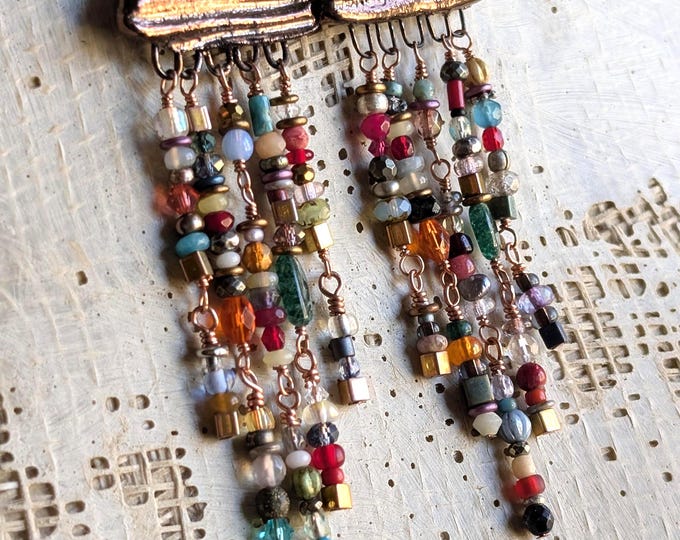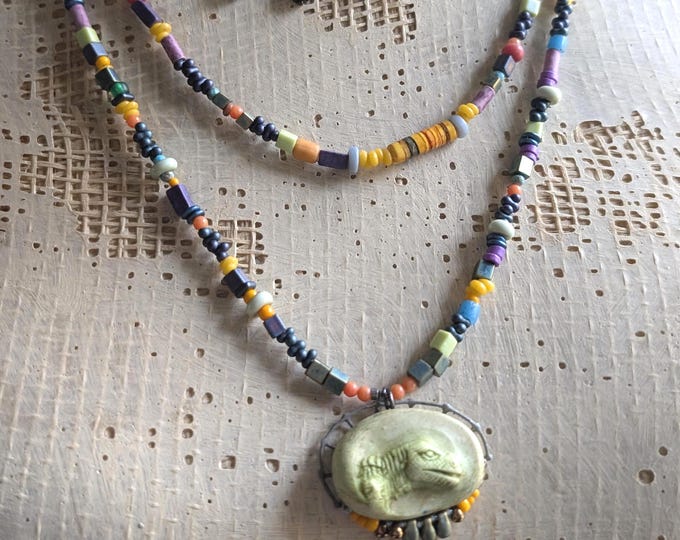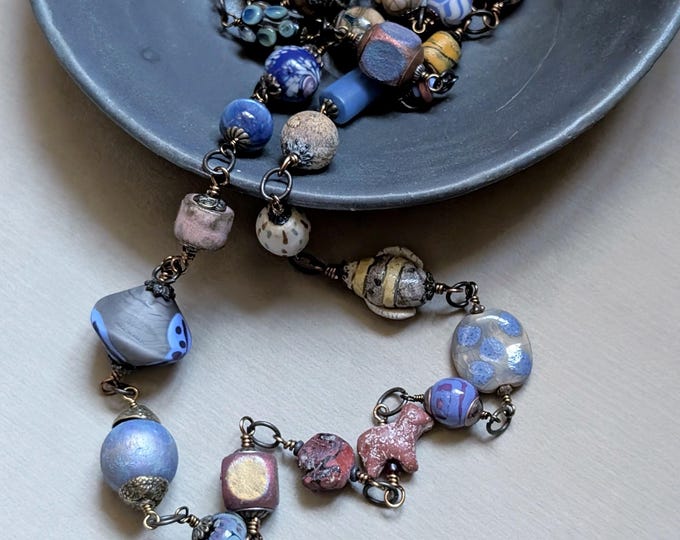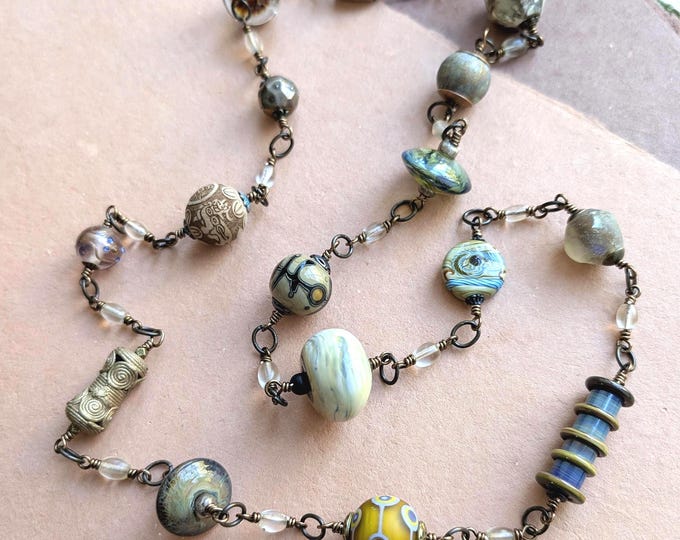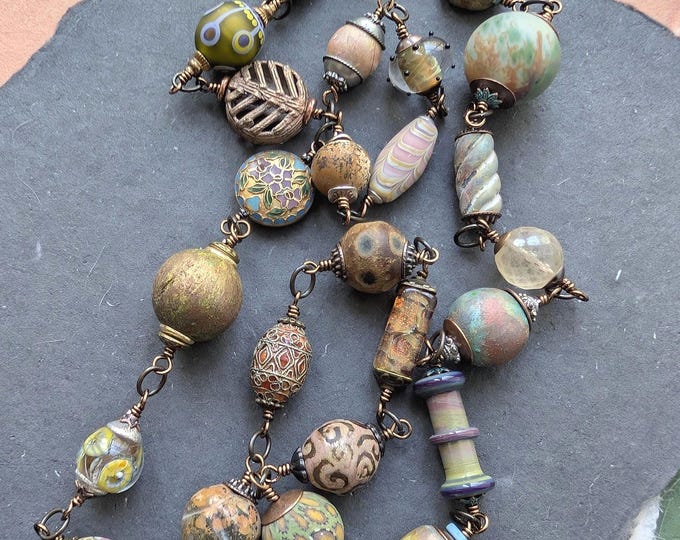
....And here's what my work's about: looking at the world of art from the outside, like an "alien" ...
Focusing on a message and a meaning for every piece, whether pure whimsy and celebration of color or something more narrative and complex. Not making baubles of common and cheap materials meant to be thrown away after a few weeks or years of wear.
Incorporating the work of individual artists with whom I have been blessed to have cultivated personal relationships, and whose work I have followed and supported. I often ask to collaborate with the bead or component maker to arrive at something I’ve envisioned for my work, developing a rich and mutually nourishing partnership that makes the work unique and synergistic.
I credit these individuals and their brand names - no, I CELEBRATE them, and I want you to come to know and prize their work. My work is not anonymous, and my friends whose work informs my passion are part of it. Their names and their stories make the works rich.
Supporting suppliers known to be fair trade and ecologically responsible. I choose deliberately not to purchase elements of my art from mass retailers. While not every part of every piece I make is rare, I strive for the uncommon, the unusual. In every piece I hope to incorporate a breath of excitement whose discovery will demonstrate the fondness I have for those who buy and wear my work.
This means I buy only from businesses who maintain a proven tradition of generous treatment and advocacy for impoverished makers from around the world, including Africa and Asia, many of whom are women and family-supporting mothers.
Supporting local and small businesses, including especially buying small amounts of supplies even at higher prices. In addition to supporting local retail business owners, it keeps my work more diverse and each piece a little unlike the others.
Choosing methods of construction that will be sturdy and last through years of wear. Not all natural materials and stones can withstand bright sunlight, substances that are exuded from our skin and environment, or frequent contact with water and other chemicals that are part of our modern life. Some stones and artisan beads are fragile, as are natural materials like pearl and amber. Like us, things wear out and break. But I deliberately strive to produce pieces that are well-constructed, easy to put on and wear.
I use modern materials in the practice of an ancient art. Since the stringing material is mostly hidden, my feeling is that employing high-tech products engineered to give a longer life to the piece doesn’t conflict with my desire to walk in a traditional path. This seems to me to be similar to thinking that one can be a person who lives close to and in respect of nature while still benefiting from modern medicine or technology.
Structuring pieces that will be comfortable and comforting to wear. That are balanced to suit the human body, even a specific human body. Whose weight will bring the wearer energy. Whose stones will take on and spread the warmth of the wearer’s life when worn. Whose presence will be a reminder of some sweet message, some secret shared by the maker, the giver and the wearer.
The essence of beading has to do with a life-embracing creativity of the everyday, and makers who come from a humble, rather than highly schooled or refined tradition. It is about the endless possibility of re-purposing the old to support the new. If craft is a better word to describe what we do than art in your opinion, that’s fine. This is independent folk art, primitive and rustic in nature, that celebrates the made-by-hand, the humble, the natural, the imperfect, the re-envisioned. I know of no better term to encompass some of what I mean than the Japanese “wabi-sabi” – but even that meaning-packed phrase doesn’t capture the energy and groundswell of people who busy their hands and minds in an effort to replace the impersonal, the machine made, the mechanically-cloned accessories dumped in mass markets with beautiful, sturdy, quirky objects that bear the maker’s touch and the user’s wisdom
Read More
